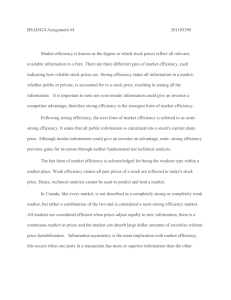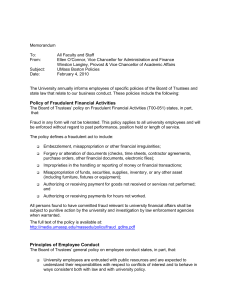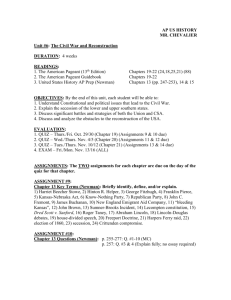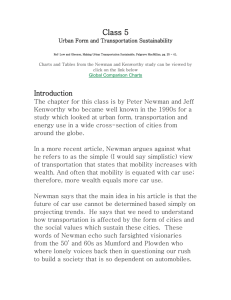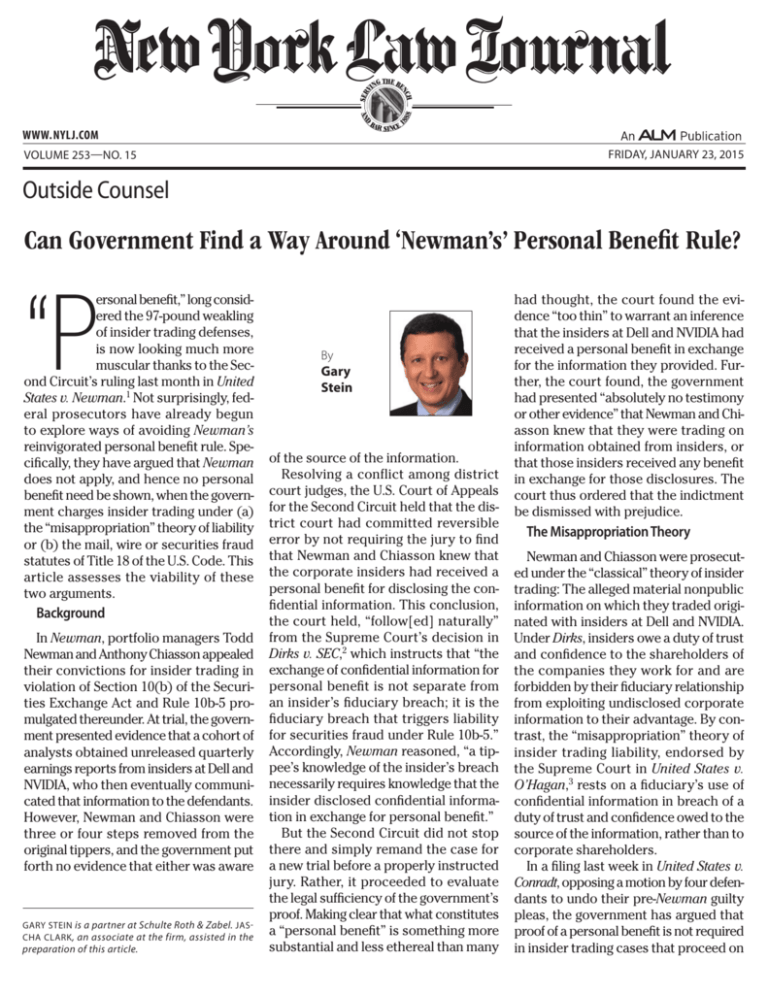
AND
88
8
SER
V
H
NC
THE BE
ING
1
BA
R SINCE
www. NYLJ.com
friday, January 23, 2015
Volume 253—NO. 15
Outside Counsel
Can Government Find a Way Around ‘Newman’s’ Personal Benefit Rule?
‘P
ersonal benefit,” long considered the 97-pound weakling
of insider trading defenses,
is now looking much more
muscular thanks to the Second Circuit’s ruling last month in United
States v. Newman.1 Not surprisingly, federal prosecutors have already begun
to explore ways of avoiding Newman’s
reinvigorated personal benefit rule. Specifically, they have argued that Newman
does not apply, and hence no personal
benefit need be shown, when the government charges insider trading under (a)
the “misappropriation” theory of liability
or (b) the mail, wire or securities fraud
statutes of Title 18 of the U.S. Code. This
article assesses the viability of these
two arguments.
Background
In Newman, portfolio managers Todd
Newman and Anthony Chiasson appealed
their convictions for insider trading in
violation of Section 10(b) of the Securities Exchange Act and Rule 10b-5 promulgated thereunder. At trial, the government presented evidence that a cohort of
analysts obtained unreleased quarterly
earnings reports from insiders at Dell and
NVIDIA, who then eventually communicated that information to the defendants.
However, Newman and Chiasson were
three or four steps removed from the
original tippers, and the government put
forth no evidence that either was aware
Gary Stein is a partner at Schulte Roth & Zabel. Jascha Clark , an associate at the firm, assisted in the
preparation of this article.
By
Gary
Stein
of the source of the information.
Resolving a conflict among district
court judges, the U.S. Court of Appeals
for the Second Circuit held that the district court had committed reversible
error by not requiring the jury to find
that Newman and Chiasson knew that
the corporate insiders had received a
personal benefit for disclosing the confidential information. This conclusion,
the court held, “follow[ed] naturally”
from the Supreme Court’s decision in
Dirks v. SEC,2 which instructs that “the
exchange of confidential information for
personal benefit is not separate from
an insider’s fiduciary breach; it is the
fiduciary breach that triggers liability
for securities fraud under Rule 10b-5.”
Accordingly, Newman reasoned, “a tippee’s knowledge of the insider’s breach
necessarily requires knowledge that the
insider disclosed confidential information in exchange for personal benefit.”
But the Second Circuit did not stop
there and simply remand the case for
a new trial before a properly instructed
jury. Rather, it proceeded to evaluate
the legal sufficiency of the government’s
proof. Making clear that what constitutes
a “personal benefit” is something more
substantial and less ethereal than many
had thought, the court found the evidence “too thin” to warrant an inference
that the insiders at Dell and NVIDIA had
received a personal benefit in exchange
for the information they provided. Further, the court found, the government
had presented “absolutely no testimony
or other evidence” that Newman and Chiasson knew that they were trading on
information obtained from insiders, or
that those insiders received any benefit
in exchange for those disclosures. The
court thus ordered that the indictment
be dismissed with prejudice.
The Misappropriation Theory
Newman and Chiasson were prosecuted under the “classical” theory of insider
trading: The alleged material nonpublic
information on which they traded originated with insiders at Dell and NVIDIA.
Under Dirks, insiders owe a duty of trust
and confidence to the shareholders of
the companies they work for and are
forbidden by their fiduciary relationship
from exploiting undisclosed corporate
information to their advantage. By contrast, the “misappropriation” theory of
insider trading liability, endorsed by
the Supreme Court in United States v.
O’Hagan,3 rests on a fiduciary’s use of
confidential information in breach of a
duty of trust and confidence owed to the
source of the information, rather than to
corporate shareholders.
In a filing last week in United States v.
Conradt, opposing a motion by four defendants to undo their pre-Newman guilty
pleas, the government has argued that
proof of a personal benefit is not required
in insider trading cases that proceed on
friday, January 23, 2015
a misappropriation theory of liability. On
Jan. 22, Judge Andrew L. Carter rejected
the government’s argument and vacated
the defendants’ pleas.4
Some cases have, in dicta, taken
the position that the personal benefit
requirement does not apply in misappropriation cases.5 Support for that
position has also been inferred from
the Second Circuit’s decision in United
States v. Libera.6 In Libera, the court reasoned that the tipper’s knowing breach
of a duty of confidentiality “suffices” to
establish the tipper’s expectation that
the breach will lead to a misuse of the
information, because “it may be presumed that the tippee’s interest in the
information is, in contemporary jargon,
not for nothing.” The First Circuit has
read Libera to imply that the Second
Circuit “would probably not require a
showing of benefit to the tipper” in a
misappropriation case.7
Personal benefit, however, was not
at issue in Libera. Rather, the court was
addressing a different question: whether
tippers must specifically know that their
breach of fiduciary duty in misappropriating information will lead to trading on
the information. The court’s answer (that
the tipper need not specifically know
that trading will ensue) says nothing
about whether an underlying breach
of fiduciary duty may only be found if
the tipper received a personal benefit,
as Newman has now said is the case. In
any event, the tipper in Libera, who gave
out advance copies of Business Week to
tippees who traded on the information,
did receive a personal benefit, in the form
of payments of $20 to $30 for each tip.
Hence, whatever Libera may have intimated on the subject of personal benefit
would be dictum.
More importantly, the Second Circuit’s
subsequent decisions in SEC v. Obus8 and
Newman itself stand foursquare against
dispensing with personal benefit in misappropriation cases. In setting forth the
elements of tipper liability under the
misappropriation theory, Obus specifically held that personal benefit to the
tipper is a required element of the government’s proof. The court further held
that, even though the Supreme Court’s
tipping liability doctrine was developed
in a classical case, i.e., Dirks, “the same
analysis governs in a misappropriation
case.” (And when Obus went to trial last
year, the district judge, with the Securities and Exchange Commission’s concurrence,9 instructed the jury it had to find
a personal benefit.)
Echoing Obus, Newman reaffirms that
“[t]he elements of tipping liability are
the same, regardless of whether the
tipper’s duty arises under the ‘classical’ or the ‘misappropriation’ theory.”
Notably, the government’s own brief
in Newman took the same position,
stating that “this Court has explicitly
recognized that, for purposes of tippee
liability, there is no material difference
between a classical insider-trading case
and a misappropriation case.”10
Federal prosecutors have already begun to explore ways of
avoiding Newman’s reinvigorated personal benefit rule.
The reasons why the same analysis
should control in both categories of cases
were persuasively articulated by the Eleventh Circuit in SEC v. Yun.11 Yun concluded that it made “scant sense” to impose
liability more readily in the case of a “tipping outsider” as opposed to a “tipping
insider,” given that the positions of both
tipper and tippee, as well as the harm to
marketplace traders, are precisely the
same under either theory. Yun further
reasoned that allowing the government
to avoid establishing the personal benefit element under the misappropriation
theory “would essentially render Dirks
a dead letter” inasmuch as nearly all
violations under the classical theory
could be alternatively characterized
as misappropriations.
The government has argued that the
classical and misappropriation theories
are “different forms of fraud” and that a
fraud occurs in a misappropriation case
merely upon disclosure of the confidential
information, regardless of whether there
is a personal benefit to the tipper. But, as
Yun explained, this argument ignores the
abundant language in O’Hagan that either
“explicitly states or implicitly assumes
that a misappropriator must gain personally from his trading on the confidential
information.” This includes, most notably, the government’s own articulation
of the misappropriation theory quoted
and adopted in O’Hagan: “A fiduciary
who ‘[pretends] loyalty to the principal
while secretly converting the principal’s
information for personal gain’ ‘dupes’
or defrauds the principal.” (Emphasis
added.) O’Hagan specifically rejected the
position that any use of confidential information by a misappropriator implicates
the misappropriation theory, holding
that the theory only “catches fraudulent
means of capitalizing on such information through securities transactions.”
(Emphasis added.)
Mail and Wire Fraud
The government also might think it can
avoid Newman by charging mail or wire
fraud instead of relying on Rule 10b-5,
as it typically does. The Supreme Court
recognized this theory of insider trading
in Carpenter v. United States,12 which held
that the deprivation of a company’s right
to the exclusive use of its proprietary
confidential information implicates the
requisite “property interest” under the
mail and wire fraud statutes. Opposing
a Newman-based motion to dismiss the
indictment in United States v. Mazzo, federal prosecutors in Los Angeles recently argued that insider trading charges
brought under 18 U.S.C. §1348, a securities fraud statute modeled on the mail
and wire fraud statutes, do not depend
on a breach of fiduciary duty and, therefore, do not require proof of a personal
benefit to the tipper.13
Does Dirks’ personal benefit rule apply
in a mail or wire fraud insider trading
prosecution? Writing in the wake of the
Carpenter decision more than 25 years
ago, Michael Dreeben of the Solicitor
General’s Office described this as an
“open question” and suggested that
this “potential conflict” between Dirks
and Carpenter “could be reconciled by
friday, January 23, 2015
grafting a ‘personal benefits’ test on the
mail fraud statute in cases of disclosure
of corporate information.”14
The government could point to language in Dirks suggesting that the personal benefit rule is derived from the
particular policies animating the federal
securities laws. As construed in Dirks,
tipping is unlawful under Rule 10b-5 only
where it runs afoul of the “purpose of
the securities laws…to eliminate ‘use of
inside information for personal advantage.’” Then too, a “personal benefit”
requirement might seem inconsistent
with general mail and wire fraud principles. The Second Circuit has stated
that, to establish a scheme to defraud
under 18 U.S.C. §§1341 and 1343, “it is
sufficient that a defendant’s scheme was
intended to deprive another of property rights, even if the defendant did
not physically ‘obtain’ any money or
property by taking it from the victim.”15
By this logic, an employee who intentionally discloses material nonpublic
information in breach of a duty owed
to his or her employer might be thought
to have caused the requisite harm to
the employer’s property rights, irrespective of whether the employee reaped a
personal benefit in return.
Yet it is clear upon closer scrutiny that
an unauthorized disclosure of corporate
information does not suffice to establish
fraudulent conduct under Carpenter. To
be actionable as fraud something more is
required, and that something more is the
undisclosed misuse of corporate property for one’s own benefit in violation of
a fiduciary duty. Dirks, O’Hagan and Carpenter are, in this regard, all peas in a pod.
Indeed, in endorsing the misappropriation theory, the court in O’Hagan specifically said that it had already found “fraud
of the same species” to be cognizable
under the mail fraud statute in Carpenter.
And, as in O’Hagan, the government’s
brief in Carpenter explicitly premised
fraud liability on the employee’s deceitful and disloyal use of his employer’s
confidential information “to his benefit.”16
What brought the conspirators’ conduct within the scope of the mail and
wire fraud statutes, the Supreme Court
held in Carpenter, was that the Wall
Street Journal reporter who was the
tipper, and who received a share of the
trading profits, was “appropriating [the
Journal’s] confidential information for
his own use, all the while pretending
to perform his duty of safeguarding it.”
(Emphasis added.)
It is clear upon closer scrutiny that
an unauthorized disclosure of
corporate information does not
suffice to establish fraudulent
conduct under ‘Carpenter.’
To be actionable as fraud
something more is required,
and that something more is the
undisclosed misuse of corporate
property for one’s own benefit in
violation of a fiduciary duty.
The court cited the New York Court of
Appeals’ seminal decision in Diamond v.
Oreamuno explaining why insider trading
violates a corporate officer’s common
law duties: “a person who acquires special knowledge or information by virtue
of a confidential or fiduciary relationship with another is not free to exploit
that knowledge or information for his
own personal benefit but must account
to his principal for any profits derived
therefrom.” (Emphasis added.) The court
also cited the Restatement (Second) of
Agency §388, comment c, which speaks
of a corporate officer’s liability for profits
generated by the officer’s own trading
on inside information or by the officer’s
“selling confidential information to third
persons.” (Emphasis added.)
Thus, it is a fiduciary’s undisclosed
misuse of corporate property for personal gain—in a word, self-dealing—that
constitutes the fraudulent conduct necessary to prosecute insider trading under
Dirks, O’Hagan or Carpenter. A tipper who
does not receive a personal benefit in
exchange for providing inside information, like the employees in Dirks and Newman, has not engaged in self-dealing and
thus has not engaged in a mail or wire
fraud (or a securities fraud under §1348)
any more than he has violated Rule 10b-5.
Conclusion
Newman marks an important shift in
insider trading law by requiring the government to prove that remote tippees
knew that the tipper had received a personal benefit, and by making it harder
for the government to prove the requisite personal benefit. The government
should not be able to avoid Newman by
arguing that it is limited to insider trading in the classical sense, or by pivoting to Title 18 fraud statutes. Like Jerry
Seinfeld, the government may not be
happy about it, but it seems it is going
to have to live with Newman.
•••••••••••••
••••••••••••••••
1. 2014 WL 6911278 (2d Cir. Dec. 10, 2014). The government
has until Jan. 23 to file a petition for panel rehearing or rehearing en banc.
2. 463 U.S. 646 (1983).
3. 521 U.S. 642 (1997).
4. Order, United States v. Conradt, et al., 12 Cr. 887 (ALC)
(S.D.N.Y. Jan. 22, 2015).
5. See SEC v. Willis, 777 F.Supp. 1165, 1172 n.7 (S.D.N.Y.
1991); SEC v. Musella, 748 F.Supp. 1028, 1038 n.4 (S.D.N.Y.
1989); see also SEC v. Lyon, 605 F.Supp.2d 531, 548-49 & n.7
(S.D.N.Y. 2009).
6. 989 F.2d 596 (2d Cir. 1993).
7. SEC v. Sargent, 229 F.3d 68, 77 (1st Cir. 2000); see also
United States v. Whitman, 904 F.Supp.2d 363, 370 (S.D.N.Y.
2012) (suggesting that Libera and other Second Circuit cases
permit liability in a misappropriation case based merely on
the tippee’s knowledge that disclosure of the inside information was unauthorized).
8. 693 F.3d 276 (2d Cir. 2012).
9. Plaintiff Securities and Exchange Commission’s Proposed
Jury Instructions, SEC v. Obus, 06 Civ. 3150 (GBD) (S.D.N.Y.,
filed March 26, 2014), at 33.
10. Brief for the United States, United States v. Newman, No.
13-1837-cr(L) (2d Cir., filed Nov. 14, 2013), at 55.
11. 327 F.3d 1263 (11th Cir. 2003).
12. 484 U.S. 19 (1987).
13. Government’s Opposition to Defendant Mazzo’s Motion
to Dismiss All Charges Against Him Based on United States
v. Newman, United States v. Mazzo, et al., Case No. 8:12-cr00269(B)-AG (C.D. Cal., filed Dec. 29, 2014).
14. Michael R. Dreeben, “Insider Trading and Intangible
Rights: The Redefinition of the Mail Fraud Statute,” 26 Am.
Crim. L. Rev. 181, 214 (1988).
15. United States v. Males, 459 F.3d 154, 158 (2d Cir. 2006).
16. Brief for the United States, Carpenter v. United States,
No. 86-422, at 14-15 (U.S., filed May 29, 1987).
Reprinted with permission from the January 23, 2015 edition of the NEW YORK
LAW JOURNAL © 2015 ALM Media Properties, LLC. All rights reserved. Further
duplication without permission is prohibited. For information, contact 877-257-3382
or reprints@alm.com. # 070-01-15-26


